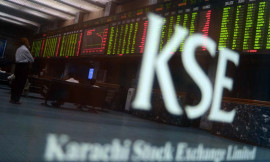
LAHORE: Foreign investment in long-term projects, joint ventures and better internal tax-collection mechanism are crucial in Pakistan maintaining a positive credit rating, said former Lahore Stock Exchange (LSE) chairman Asim Zaffar.
Zaffar viewed that a positive rating was not a one-day process as it entailed a complicated procedure, adding that Pakistan’s economic indicators did not just improve overnight.
However, now the overall business and economic indicators were showing positive signs following an increase in the country’s foreign reserves; successful sale of the Euro Bonds and coming up to the World Bank and International Monetary Fund’s expectations.
“The result is apparent as the world renowned credit rating agency, Moody’s International, has termed Pakistan’s credit rating as positive,” he said. To another question, he said that since the economy had started moving in the right direction, the government must focus on improving internal revenues. This money should be spent on problems such as education, health, infrastructure, energy and other sectors that would prove to be very helpful in resolving the overall economic challenges of the country.
The former LSE chief observed that the population’s tendency for tax evasion is due to the lack of facilities being provided by the government. Enhanced services and facilities are required to encourage the people to pay their due taxes.
To another question, Zaffar said that China was a tested friend of Pakistan and has made huge investments in a number of energy, infrastructure, water and other projects in Pakistan. “These long-term investments by Chinese companies would help further stabilise our economy,” he said.
Zaffar further said that since formation of the current government, the country’s stock exchanges had been experiencing bullish trends, which would further scale up due to the positive credit rating.
The former LSE chairman added that the previous government had failed to exploit market potential and failed to pay attention to market strategy. “Today, the shares of foreign investors are much higher in our markets,” he said. “This has both positive and negative impacts.
Published in The Express Tribune, July 22nd, 2014.
Like Business on Facebook, follow @TribuneBiz on Twitter to stay informed and join in the conversation.
COMMENTS (2)
Comments are moderated and generally will be posted if they are on-topic and not abusive.
For more information, please see our Comments FAQ



































































@Arsalan Yasin:
Basically, positive: shows investor trust in economy, brings better practices and finally money coming in to the country is a good thing almost always negative: foreign investors (without proper checks and balances) can disrupt local market because they have more resources.
What are the positive and negative effects of foreign investments in the Pakistani's stock markets?